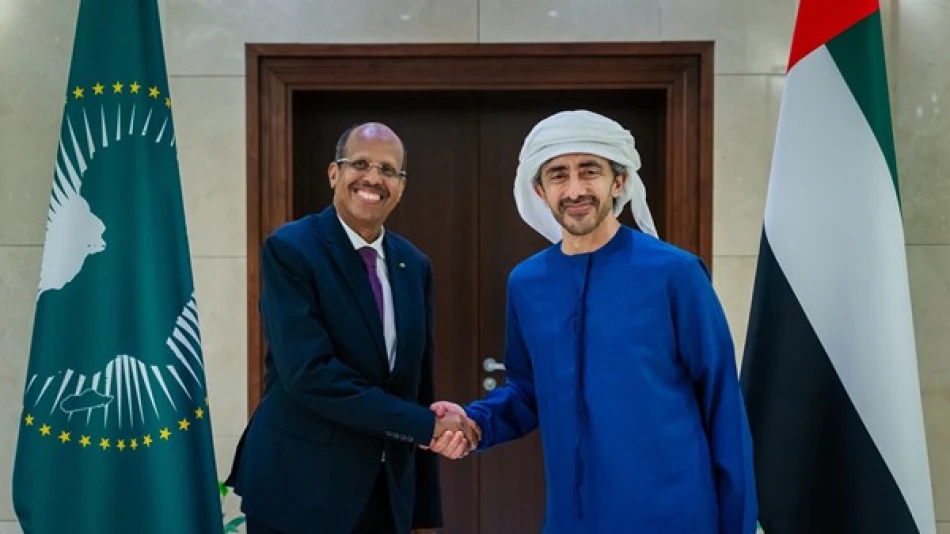
UAE Foreign Minister Welcomes African Union Commission Chairperson for High-Level Talks
UAE Deepens Africa Strategy as New AU Commission Chief Takes Helm
The United Arab Emirates is positioning itself as a key partner for Africa's development agenda, with Foreign Minister Sheikh Abdullah bin Zayed Al Nahyan meeting the newly appointed African Union Commission Chairperson Mahmoud Ali Youssef in Abu Dhabi. The high-level diplomatic engagement signals the UAE's intent to expand its influence across the continent as global powers compete for strategic partnerships in one of the world's fastest-growing regions.
Strategic Timing of Diplomatic Outreach
The Abu Dhabi meeting comes at a critical juncture for both the UAE and the African Union. Sheikh Abdullah congratulated Youssef on his recent appointment and emphasized the UAE's commitment to strengthening cooperation with the AU Commission across multiple sectors. The discussions focused on enhancing bilateral relations and exploring avenues to support development initiatives throughout African nations.
The timing reflects the UAE's broader strategy to diversify its diplomatic and economic partnerships beyond traditional Middle Eastern allies. As oil revenues remain volatile, the Emirates has increasingly looked to Africa's emerging markets for trade opportunities, investment destinations, and geopolitical influence.
Economic Implications and Investment Potential
UAE's Growing African Portfolio
The Emirates has already established itself as a significant player in African markets, with Dubai serving as a major trade hub connecting the continent to global markets. UAE-based companies have invested heavily in African infrastructure, telecommunications, and energy projects, with total bilateral trade exceeding $40 billion annually in recent years.
For investors and multinational corporations, this diplomatic strengthening suggests potential new opportunities in sectors ranging from renewable energy to digital infrastructure. The UAE's sovereign wealth funds and state-backed enterprises often follow diplomatic initiatives with substantial capital commitments.
Competition with Global Powers
The UAE's Africa strategy mirrors similar moves by China, which has invested hundreds of billions through its Belt and Road Initiative, and the United States, which launched its Prosper Africa initiative. Unlike these larger powers, however, the UAE offers a unique value proposition as a Muslim-majority nation with no colonial history on the continent and significant expertise in managing resource wealth.
The meeting also discussed regional and international developments, indicating that security cooperation and diplomatic coordination may feature prominently in future UAE-AU relations.
Long-term Strategic Implications
This diplomatic engagement likely foreshadows expanded UAE involvement in African Union peacekeeping efforts, climate initiatives, and economic integration projects. The presence of senior Emirati officials, including Minister of State Sheikh Shakhbout bin Nahyan Al Nahyan and the UAE's ambassador to Ethiopia, underscores the institutional commitment behind this partnership.
For African nations, deeper ties with the UAE could provide access to advanced financial services, logistics expertise, and connections to Asian markets through Dubai's established trade networks. The partnership may prove particularly valuable as the African Continental Free Trade Area gains momentum, requiring sophisticated trade facilitation and financing mechanisms that UAE institutions are well-positioned to provide.
Most Viewed News

 Layla Al Mansoori
Layla Al Mansoori






